|
Jeannette Ng, Under the Pendulum Sun, Angry Robot, 2017. Under the Pendulum Sun is a Brontë hommage on LSD and it's very, very, good. This is, as usual, an entirely spoiler-free review. Jeannette Ng was extremely kind in accepting to answer some of my questions, so at the end of the post, after some suitably big and red and very visible warning, you'll also find a spoiler full Q&A with the writer. Catherine's brother, Laon Helstone, has disappeared in Arcadia, the Fae land, recently discovered and that most colonising powers are now desperate to establish trade links with. Catherine, with the support of the missionary society her brother belongs to, leaves to Arcadia, hoping she will find him back. From the start, Under the Pendulum Sun establishes its strong Victoriana theme. It isn't only visible in how the characters behave but also in who they are, as one of the main character is a missionary. Their morals too are very much Victorian. But Under the Pendulum Sun also references to many Victorian works: it goes from hymns, to the Victorian texts refering to faes, to inspiration from the Brontës novels and particularly to Jane Eyre: just like St John Rivers dreams of becoming a missionary, Laon is one; just like Jane met Mr Rochester, Catherine will meet a man falling from his horse. The risk of so many references is always that they would lead to a sterile game of spot the references, but I strongly suspect Ng to have taken a fiendish delight in getting the Brontës fans elaborating theories based on what they knew, just so she could take the rug from under their feet a couple of times. And all the while they would berate themselves, thinking "I should have guessed it because of..." (In case I wasn't clear enough, yes, I was talking about my reactions!) It is a remarkable work from Ng of working on and undermining the reader's expectations to tell her own story. It makes of Under the Pendulum Sun a true rewriting, taking a truth to subvert it and lead to a new truth. The intertextuality isn't only Victorian: a couple of Greek myths are subtly interwoven within the story and the Judeo-Christian myths are the keystone of the novel, as are the Christian symbols like the fish or the cross. To that, you should add Ng's incredible inventiveness and imagery when she depicts Arcadia, the Fae's world. It all gives the sense of a deep and slightly hallucinatory world. Nonetheless, Ng never falls into the trap of letting the (wonderful) world building cannibalise her story that proceeds at a quick pace. Like in any good Gothic novel, there's a mystery (or even two) to be solved and the characters go from shattering revelations to further questions. In a sense, it was my only regret: though the novel felt complete, I felt it still had things to give and that another hundred pages or so would have been welcome, particularly when it came to one character. In a sense, Under the Pendulum Sun is Victoriana gone mad: questioning articles of faith with logic or in the light of encountering the Other, breaking taboos and morals (which leads to some interesting character development to say it mildly!), breaking the dainty imagery of faes and filling their world with blood and treachery. Under the Pendulum Sun is without a shadow of doubt one of the best fantasy story I've read in 2017. I was engrossed in the mystery, delighted by the scope of the intertextuality, thrilled by the reversal of situations I hadn't seen coming and amazed by the world building. Under the Pendulum Sun not only has a fantastic cover, it also has a great story to tell that I would urge any fantasy reader, particularly if they are keen on gritty Victoriana, to try. The writer's blog on Medium. Update, April 2018: Jeannette Ng has been nominated for the Campbell Award for Best New Writer. Here be spoilers.The spoilery Q&A with Jeannette Ng The following is full of spoilers. If you read any further and haven't read or finished Under the Pendulum Sun yet, it's at your own peril. However, I strongly urge you to read this only if you have finished reading it as the twists and turns are worth the surprise. 1. There is so much to this world. At this point in time, do you think you'll go back to it and explore it further ? I can't say I'm not tempted to return to the world. I keep toying with the idea of one set some years into the future with a fae or changeling point of view character, possibly set in the "real" world and flipping that script. However, the world of PENDULUM SUN is very tightly bound up in its themes and most of it serves double duty as some sort of metaphor. I'm not sure how much it can be repurposed to tell a different story with assumedly different themes and keep the sort of consistence and coherence that I would demand of it. 2. Incest (between consenting adults) is a very strong taboo. Did you choose this relationship for the shock and twists it brought or was it to keep on with the Jane Eyre rewriting (Catherine/Jane this time 'marrying' Laon/St John)… or any other reason, actually ? I have jokingly described it as the St John Rivers/ Jane fanfic that no asked for. Especially given the three siblings Jane discovers she's secretly related to is very reminiscient of her own three siblings. So, yes. I also blame having read VC Andrews' FLOWERS IN THE ATTIC when I was quite young and that imprinted in my mind a lot of the beats of a gothic novel: that we need a big beautiful house full of secrets, isolation, claustrophobia, repressed sexuality and incestuous desires. I had rattling around in my head a version of Victorian missionary in fairyland for years but it lacked direction. I wanted a slow descent into madness but it was too predictable in its pace. Each step challenged his world view and at each step his world broke a little more. His arc was way too straightforward. It wasn't until after I saw CRIMSON PEAK and I was itching to try my hand at the gothic that I started deconstructing the genre. In boiling it down I started describing the not-quite-as-innocent-as-she-seems woman in an unfamiliar place, one full of arcane rules that can be broken for no reason, etc. More and more it just sounded like it was the fairyland idea so I combined the two. And of course the missionary gained his secret sin that defines his character in that same moment when two narratives fit together. Moreover, I wanted the theme of sin to be partly grounded in something that was very squicky and horrifying thing to the reader but also doesn't actively harm anyone. There needed to be a dark, uncomfortable secret at the heart of the gothic novel without it tipping into murder basements of gore. It ties very much into the other aspect of UNDER THE PENDULUM SUN's creepiness, which is its use of biblical and theological ideas, but recontextualising them to make them creepy[1]. The obvious example is to use the incestuous bits of SONG OF SOLOMON to bookend the sex scenes. I can easily go into how in context, the biblical passages were written by a culture that regularly used sibling language to describe lovers. Chinese martial arts novels and ancient Egyptian love poetry also does this, so it isn't that weird per se, but the point is that I'm bringing that out. Finally, the Percy Shelley reference. He uses consentual sibling incest in LAON AND CYTHNA to embody egalitarian love. Which is, of course, what Mab/Lilith is purporting to be her reason for bringing them together. Both LAON AND CYTHNA [2] and QUEEN MAB deal with the creation of utopias, dream visions and the romantic casting down of earthly laws. There's a string of references there that is decidedly into the territory of stuff only I care about. 3. The Foucault's Pendulum demonstrates the rotation of Earth. If Arcadia is Hell, then what does the Pendulum demonstrates (if anything) ? There's a lot of fun, cut science around this. There's a queued blogpost [note from C.: more on this in a future blog post to be posted] I wrote all about how I cornered a physicist to help me with the world building. The central conceit is for it to be this model of the world, a "joke" on the idea of a watchmaker god. It was also very Victorian idea of how the world should work, one that formed a lot of the base assumptions in science. That everything makes sense by design. They were also really into giant clocks called things like THE MICROCOSM and they would tour Britain and Europe as a form of entertainment with a sprinkling of scientific education. One of the cut journal entries involved Captain Cook and his scientists discovering the various quirks of Arcadian physics. I had this thought of reference Foucault's pendulum (basically the plane of the pendulum's swing wouldn't rotate because Arcadia doesn't rotate like earth does). Tragically it's just that little bit too late. PENDULUM SUN is set in 1847 (year of Jane Eyre's publication, of course) and Foucault's public exhibition was in 1851. I kind of like the idea that the fae might try to update their model when that is learnt. After all, before they found a clockmaker to suggest a pendulum for a sun they had a chariot pull it about. The chariot would gallop on the dome of a sky and spiral upwards. Thus the dark reaches of fairyland was in the "middle" and everything was concentrated in an outer ring. At one point there was a plan to have Cathy unearth some real fae ruins, from the time of the chariot sun, but then that whole history got far, far too elaborate as a side story. I also wanted to do something with the Coriolis effect (which is the rotation of the Earth affecting ballistic projectiles causing them to "drift" sideways very slightly) which would, of course, not be at work in Arcadia. There's also a famous WWI battle where the guns were compensating in the the wrong direction and I had vague plans of refencing that in the fae's seemingly magical ability to be just out of reach for each shot, but it didn't quite work out and it ended up on the cutting room floor. And Victorian ballistics aren't really accurate so I'd have to do a lot of fudging. 4. I may be influenced by one of my earlier theory but I felt like you maintained some ambiguity regarding Laon's identity, up until the end. Was it intended or am I reading too much into that ? I can't say it was entirely intended but I can really see that once you mentioned it. All the pieces are there: He's always framed as distant and different to the brother of Cathy's memories, which feeds that ambiguity. Add to that we've introduced the idea of fae simalcra being just that little bit off as people and things from the mists not being real, it's a very solid theory (I suppose once you've introduced replicants, everyone can be a replicant). The references to WUTHERING HEIGHTS are less structual than the ones to JANE EYRE, of course, but we still have all that roaming the moors in childhood like Heathcliff and Cathy. So Laon having an otherworldly element fits neatly with Heathcliff as as novel's mysterious changeling child and Catherine Earnshaw's maybe sibling. I really wish I saw it earlier and worked with it more. 5. The theme of absence, of what isn't there, is very prevalent in Under the Pendulum Sun : absence of Roche, absence of most laws of physics, absence of Laon in the beginning, absence of parishioners that would give purpose to the mission, absence of truth… One could argue that it's because it's an extremely effective way to maintain the mystery, particularly in a Gothic novel. But is there more to it ? Arcadia fundamentally lacks God or at least proof of god (after all, the Tractians can just be wrong about transubstantiation as a premise to their experiment). Which is itself a definition of Hell that I was taught in school (way back when I first studied PARADISE LOST, though arguably not itself textual to Milton). God is that animating spark of life that exists in everything ("For Christ plays in ten thousand places" as ee cummings would put it). PENDULUM SUN differentiates between the "harrowed Hell" that is the Hell where damed souls go and Christ visited after his death that and the Hell that is the absence of the divine and inhabited by the exiled angels. Being utterly cut off, Arcadia lacks the animating spark of God and thusthe fae are required to do everything "manually". The need to make sense of the yourself and the world around you in an ever shifting information, one that lacks solid anchors is a feeling that I find very compelling. Knowledge is a web of interconnected facts that can each turn out to be lies or at least not as true as previous thought. Which brings us to the CLOUD OF UNKNOWING, the medieval Christian mystical text all about knowing God not through intellectual knowledge but through a sense of forgetting. It's often cited as a foundational text in Christian mediation. 6. The imagery and bestiary felt extremely striking to me : the pendulum sun, the land whales, the moon fish, etc. I couldn't find a way to say it in the review without hinting at the reveal that Arcadia is Hell, but it felt to me as if the whole setting of the novel was a rewriting of Hieronymus Bosch's Garden, with the very central question of sin. Am I very far off the mark ? The working title of the novel is, in fact, GARDENS (or a variant thereof: GOSPEL OF THE GARDENS and GARDENS OF THE LOST both came up). And I love Hieronymus Bosch, so I'd love to claim that one was conscious design, but it's probably more honest for me to say that both Bosch and I were working off the same inspiration of biblical gardens. Neither of us are the first to point out that the story of sin is bookened by moments in gardens[2]: it all beginning in Eden and then ending in Gethsemane and Golgotha. That very story is the one at work in Arcadia, what with Lilith's desire (or not) to recreate biblical scenes but in her own image. Also, speaking of Gardens, there are two schools of gardening aesthetics at war in the early Victorian era. We basically have two vague schools, one proposing capturing the wild untamed quality of the landscape and one seeking to recreate allegorical paintings with real plants. The idea of a barely tame garden was on the rise and this informs some of the passages of gardens, but also that larger idea of a controlled space that values the illusion of free will. Fairyland being Hell isn't itself original. SIR ORFEO, medieval poem about a knight going to rescue his beloved from fairyland is an obvious reworking of Orpheus and Euridice. You can see in PENDULUM SUN the shape of story of going to hell to bring back a beloved but then failing due to the deeply unfair conditions laid down by the tyrants that rule there. But central to whole thing is how the reader understands the purposefully ambiguous ending of the two literally going further into hell. Which can trivially be read as a metaphor for a damnation. Equally you can put the book down firmly of the opinion that it is the right choice for them to have made, that it is the braver choice and adapt their understanding and their faith to this new knowledge. -- [1] Itself a very common trick in horror. That an everyday thing and make it scary. It works doubly well if you're taking the creepy subtext and implications and making them ACTUAL TEXT. [2] The publisher at first refused LAON AND CYTHNA due to both its central incestuous relationship and its incredibly anti-religion content. After much soul searching, Shelley wrote out the incest and downplayed the athiest themes by emphasising Islam (which functions as a proxy for Christianity, the thing he can't slam directly in his writing). It was then published under the title THE REVOLT OF ISLAM. [3] Song of Solomon also has all that lovely enclosed garden imagery. Add to that medieval art patrons wanting to show off their own castles and gardens in the work they commission, we have a very strong recurring motif. Thank you so much to Jeannette Ng for agreeing to answer to my questions and for her insight on her work!
0 Comments
Your comment will be posted after it is approved.
Leave a Reply. |
All reviews are spoiler free unless explicitly stated otherwise.
I only review stories I have liked even if my opinion may be nuanced. It doesn't apply for the "Novels published before 1978" series of blog posts. Comments are closed, having neither time nor the inclination to moderate them. |
WHAT IS THE MIDDLE SHELF?
The middle shelf is a science-fiction and fantasy books reviewS blog, bringing you diverse and great stories .
PLEASE SUPPORT AUTHORS.
IF YOU LIKE IT, BUY IT. |
ON THE MIDDLE SHELF
|
KEEP IN TOUCH WITH THE MIDDLE SHELF
|
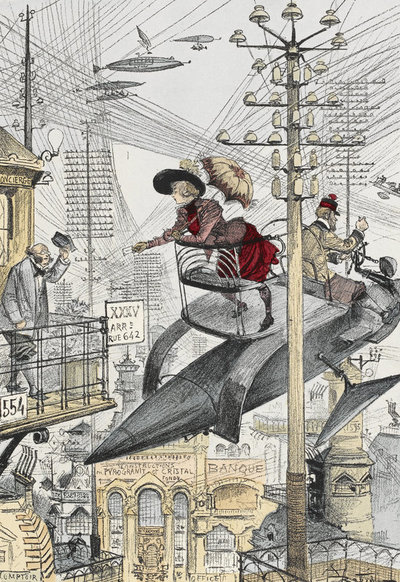
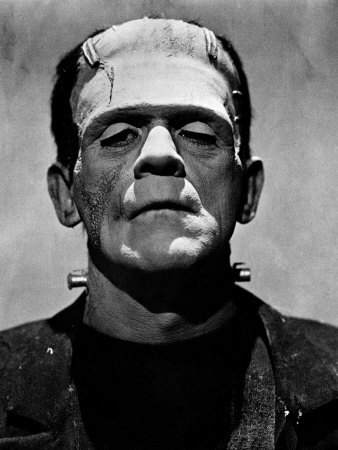
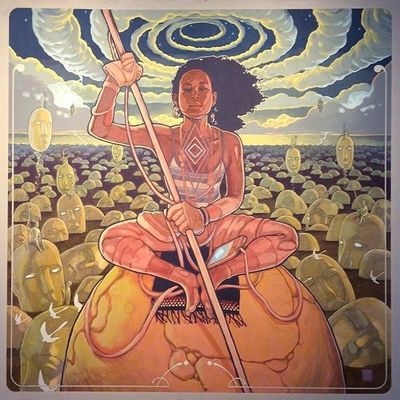
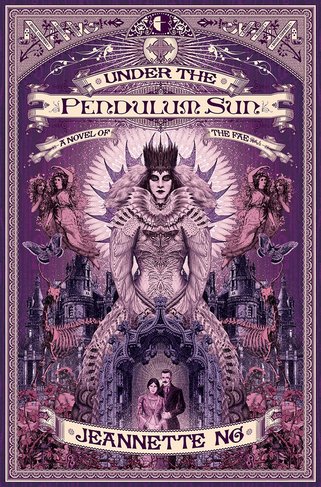
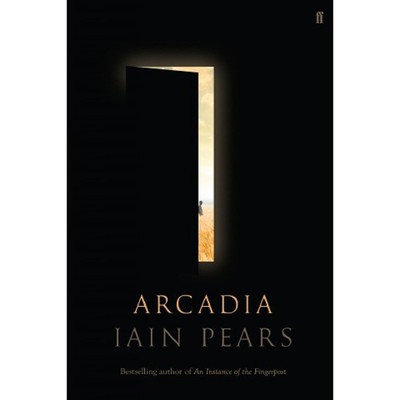
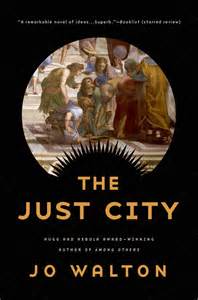
 RSS Feed
RSS Feed
